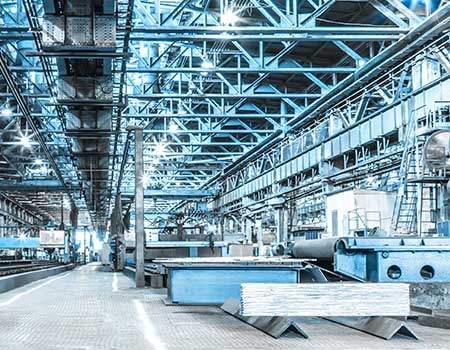Decentralized Manufacturing
For most small businesses, a decentralized manufacturing model is not the most practical. Although the cost of shipping is lower when a facility is located close to the customer, the savings is often counteracted by the greater start-up costs.
A centralized plant serves as the single manufacturing source, which makes quality and cost control easier. Decentralized production management requires balancing varying overhead costs based on the costs of property, taxes, and labor in the area.
As a business expands, it may be practical to adopt a decentralized manufacturing structure if building an international business. The cost of shipping goods overseas plus tariffs may make the effort worthwhile. When dealing with perishable products or highly regulated products, the laws can vary dramatically from one country to another encumbering the growth process for a business with a single manufacturing location.
Centralized vs Decentralized Organizational Structure
In most cases, setting up a decentralized system within the same country costs more and may only make sense for large corporations.
Decentralization of production is appropriate when setting up a location to serve a large area, such as a foreign country. Within a country, an alternative method to manufacturing in multiple locations is having a third-party store goods in a warehouse and perform fulfillment. Naturally, the best approach will rely on the nature of the product and what is normal in that industry.
Decentralized inventory management can be seamless when all your company data is integrated from multiple locations.
 Benefits of Decentralized Manufacturing
Benefits of Decentralized Manufacturing
- Faster customer delivery
- Lower labor costs
Pitfalls
- Inconsistencies in product manufacturing
- Higher costs/unit
Benefits of Centralized Manufacturing
- Improved product forecasting
- Consistent production schedules
- Lower cost/unit
Pitfalls
- Higher cost/customization
- Less flexible
Most businesses don’t begin as decentralized structures, rather the addition of manufacturing plants is implemented later to accommodate growth. When the product is easy to produce, this switch is easier to make.
Centralized or Decentralized Manufacturing Software Considerations
 Whether your business manufactures at a single location or multiple sites nationally or internationally, SOS Inventory provides your business with the features and functionality to handle various currency, taxes, costs, processes, and more, integrating your entire business model with a centralized database. Even if your business starts out with a centralized manufacturing structure, adding and managing an additional location as your business grows is simple to implement at any stage. SOS allows your business to track every change and workflow, adding costs as they are incurred, accounting for coproducts and byproducts.
Whether your business manufactures at a single location or multiple sites nationally or internationally, SOS Inventory provides your business with the features and functionality to handle various currency, taxes, costs, processes, and more, integrating your entire business model with a centralized database. Even if your business starts out with a centralized manufacturing structure, adding and managing an additional location as your business grows is simple to implement at any stage. SOS allows your business to track every change and workflow, adding costs as they are incurred, accounting for coproducts and byproducts.
The deep analysis SOS Inventory provides into product performance will arm your business with the information it needs to make informed decisions about inventory acquisition, expansion, and performance by location. Your team will be able to pinpoint waste and save on labor costs by streamlining many processes throughout production and beyond.
Lower your labor costs while scaling your company for growth with tools designed to empower with accurate, transparent data and streamlined processes. Whether a central or decentralized manufacturing structure, SOS Inventory will help your business succeed.







 Benefits of Decentralized Manufacturing
Benefits of Decentralized Manufacturing